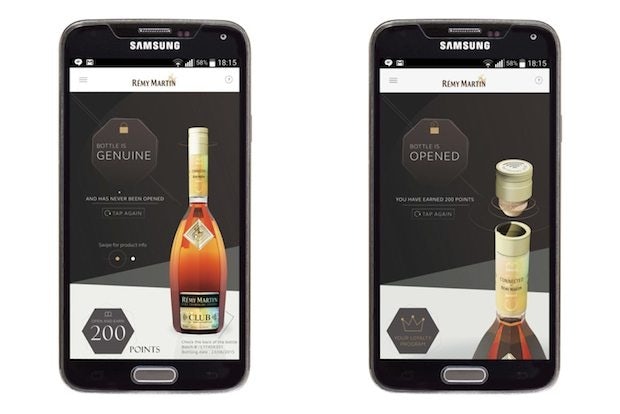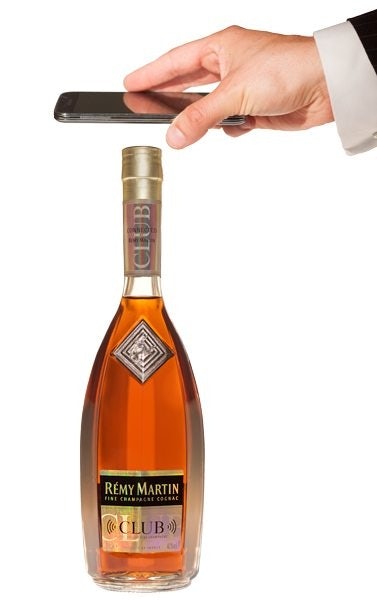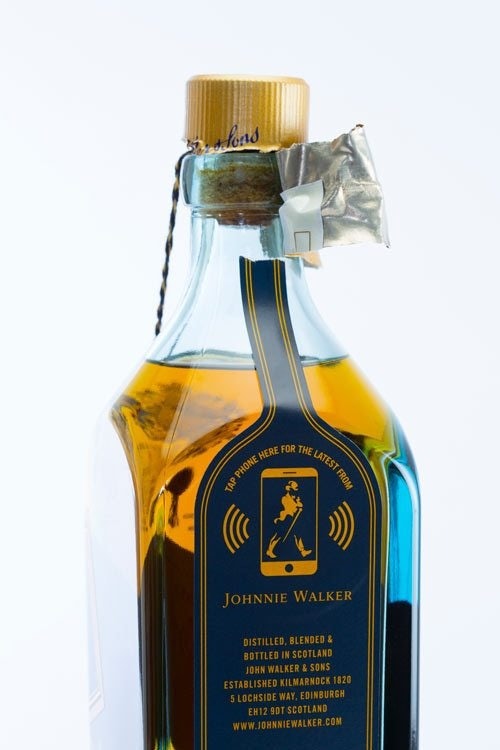
As fake high-end alcohol remains a rampant problem in China, Rémy Martin is the latest of several high-end alcoholic beverage companies using high-tech solutions to fight counterfeits.
As Chinese consumers shell out money for brand-name alcohol, many are duped by counterfeiters using fake labeling or even refilled bottles. Online Chinese retailers such as Alibaba have been facing pressure from consumers and the government over the massive amount of fake items in the underground daigou market, which is worth billions.
In order to combat this problem, Cognac-seller Rémy Martin collaborated with Selinko, an anti-counterfeiting service, to produce a smart bottle, which works in conjunction with mobile phones. Available in China this fall, the bottle uses near field communication (NFC) tags to verify the bottle’s authenticity and whether or not it’s been opened via a mobile app.
To use the system, the user downloads an app from Rémy Martin to their mobile phone and then taps the bottle top. The NFC tag in the bottle will emit a different signal back to the phone depending on if it has been opened or not. Tapping the bottle can also give consumers points towards a customer engagement program, with other opportunities to engage users possible as well. Currently, the app is only supported on Android OS phones.

Selinko offers CapSeal, which is an anti-refill protection in the neck of the bottle, and LabelSeal, which is hidden behind the bottle’s label. The CapSeal is deactivated after opening the bottle. The NFC tags also allow its owners to track where along the distribution process the item was authenticated, from supplier to retailer.
The ability to detect whether or not a bottle has been opened is key to fighting fake alcohol sales. As Chinese consumers have become more aware of fake labels, underground sellers have been using empty brand-name bottles instead. Frequently, those brand-name bottles will be filled with lower quality alcohol, or sometimes even toxic chemicals, both of which hurt companies’ reputations—not to mention consumers’ health. As of last year, up to 70 percent of wine in China might have been counterfeit, according to Nick Bartman, a counterfeit-specialist lawyer.

Rémy Martin actually isn’t the first drinks brand to debut verification technology to its products. Diageo Technology Ventures worked with ThinFilm, a printed electronics company, to roll out the first smart bottle earlier this spring for its Johnnie Walker Blue Label using ThinFilm’s OpenSense NFC tags. The OpenSense tags work similarly to Selinko’s tags and are permanently attached to the bottles and cannot be reproduced or modified. Previous authentication technology has tried to use QR codes, which can be difficult to read and easy to copy.
Australia’s Ferngrove Wine has also begun working with ThinFilm to produce its own smart bottles to be released exclusively in China after beginning work on its own app last year.
NFC tags can work with most any product they can be attached to. Both Selinko and ThinFilm list a variety of other applications for NFC tags, such as pharmaceuticals and cosmetics. The next step would be to expand NFC technology to non-Android operating systems, such as Apple’s iOS.